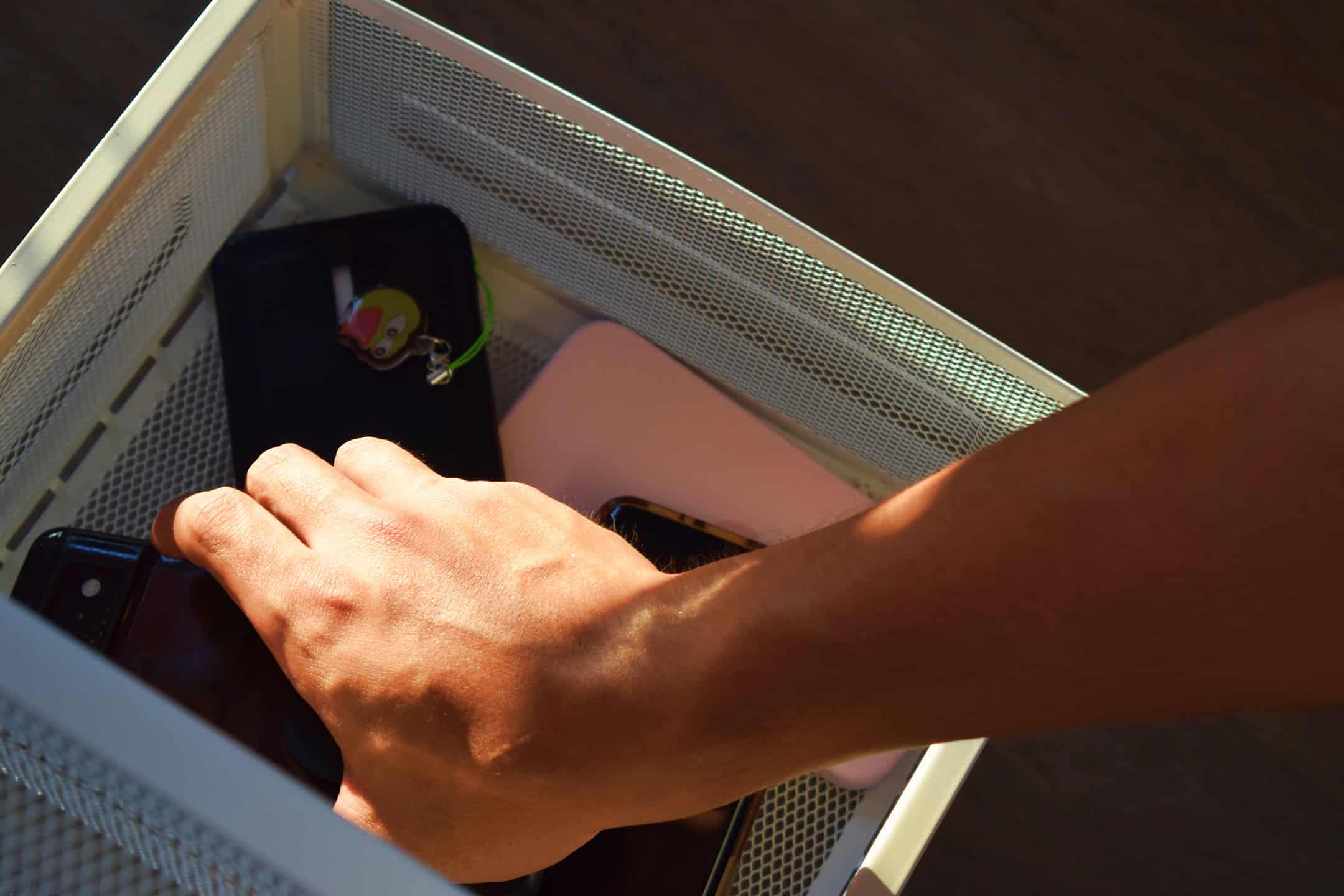Returning to classes this year, Ontario high school students won’t have their phones. Starting this September, students in grades seven to 12 will no longer be permitted to use their cellphones during class unless explicitly instructed to do so. All social media platforms will also be blocked on school networks and devices.
The province’s push to ban cellphones during class time comes from concerns about the impact of cellphones on learning and mental health outcomes. University professors and students have also weighed in on the effects of cellphone use in the classroom.
While supporting the ban’s mental health benefits is divided, some studies have found positive impacts on learning outcomes when schools ban cellphones — although others continue to disagree.
Rhonda McEwen, president of Victoria College and a professor at the Institute of Communication, Culture, Information, and Technology at U of T’s iSchool, is opposed to the cellphone ban. In an interview with The Varsity, she argued that schools lack the required enforcement capacity to regulate the ban and that technology has a place in the classroom — especially for students who need accessibility and academic support.
Despite these concerns, she acknowledged that there are real academic challenges posed by students using phones in class. “What we find is that the way that social media has been architected from the start is to keep you on and commenting, liking, viewing, interacting, or engaging as much as possible,” she said.
McEwen noted that in teaching and learning environments, students become unable to control how much of their attention is focused on the instruction, compared to their device.
She also brought up the example of Bisphenol A , a harmful chemical compound, which was extensively used in baby bottles until Health Canada banned it in 2010.
“There was enough of an uproar that eventually the manufacturers are thinking, ‘Can we do the same thing without something quite as toxic?’” she explained. “The government [then] came in with some rules around [Bisphenol A], and then they were enforced.”
McEwen believes that we’re in a similar scenario with cellphones, where the responsibility should be on the software developers to fix the problem they have created and that the government may need to play a role in facilitating this.
Cellphones in university
Disrupted learning is not only a problem at the high school level. In a widely shared incident, a MAT224 class in fall 2023 had a 29 per cent average on a final last term, sparking debate over how U of T teaches and assesses students.
While increases in absences and pandemic-related learning loss may be contributing to declining student performances, the last few years have made clear that existing in the physical world — not just the virtual one — is important for learning.
At the university level, several studies have found a negative correlation between cellphone use and academic performance, as well as satisfaction with life. There has even been found a positive correlation between cellphone use and levels of anxiety. A recent study by the University of Texas at Austin found that the mere presence of a smartphone may reduce cognitive performance.
Some professors have experimented with digital detoxes in the classroom. Alastair Daniel, a second-year student in Near and Middle Eastern studies and philosophy, took one such class over the summer: PHL217 — Introduction to Continental Philosophy.
“[The professor] gave us a giant binder of readings on paper and he asked us to physically mark them up and bring them to every class,” Daniel told The Varsity, commending the professor’s approach. “I kind of hate online things. I find they detach me from the class a lot, and they sort of reduce my attention… no phones in class really [lets] you focus on the material.”
Eliana SanFilippo, a first-year student planning to study literature and critical theory, decided to ditch her smartphone entirely. “I found it very distracting. Some of my friends really laughed a lot because they were like ‘you, of all people, you’re the most YouTube Shorts-addicted of all of us.’”
“That was exactly why I needed to get rid of it,” she explained in an interview with The Varsity. “I realized that I was spending a ridiculous amount of my life doing things that I thought were dumb things to do… You kind of resent the device.”
SanFilippo opted to get a flip phone the summer after high school and said she is grateful to have made that choice. “Carrying something around that’s always demanding of you is so exhausting. So now what I carry around is a tool, and I don’t have to think about it, and it doesn’t take up any of my energy or brain space, because it’s solely about being able to contact people that I need to contact,” she said.
For students dissatisfied with their cellphones, opting out is not always easy. “So much social stuff related to university has been entirely dependent on having an Instagram, and that’s so ridiculous,” SanFilippo said.
“The default is to ask for someone’s Instagram, and it seems… weirdly personal now to ask for someone’s number,” she explained. “Rather than some people choosing to have a social media presence… you’re missing [out] if you choose not to have one.”
She noted that the university should do more institutionally to accommodate students without smartphones. “It’s not just a problem of social norms. It’s a problem of clubs, for example, using exclusively QR codes and Instagram links.”
Despite these challenges, SanFilippo does not regret getting rid of her device. “I think I hear far, far more negative talk about social media than positive,” she wrote to The Varsity. “Not having Instagram is a great way to make only the really good kind of friends. It narrows your pool to people who want to have a real solid friendship and not a passing ‘likes your stories’ acquaintances. And of course, the more people opt out of a social norm, the less the norm exists!”



No comments to display.